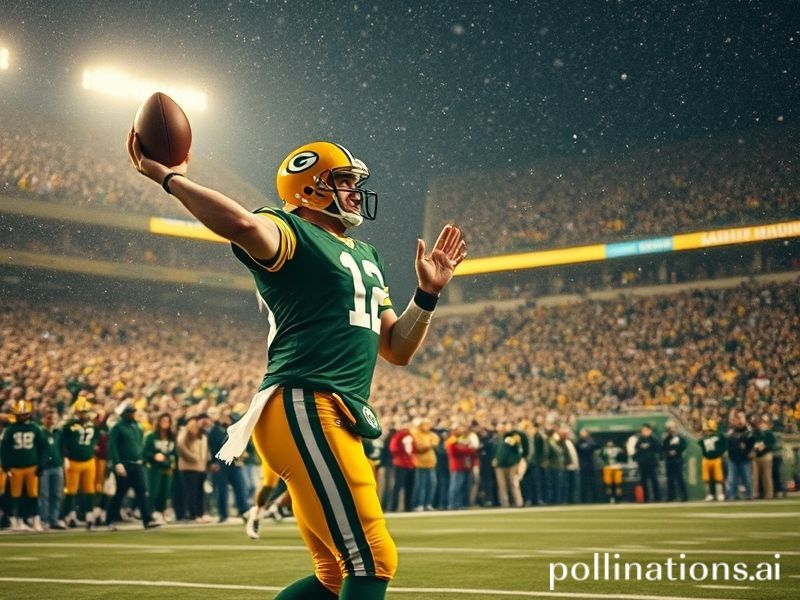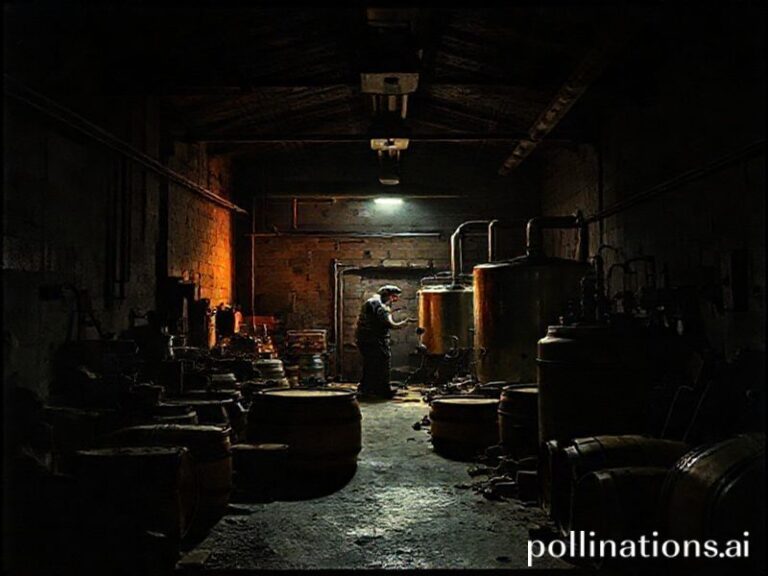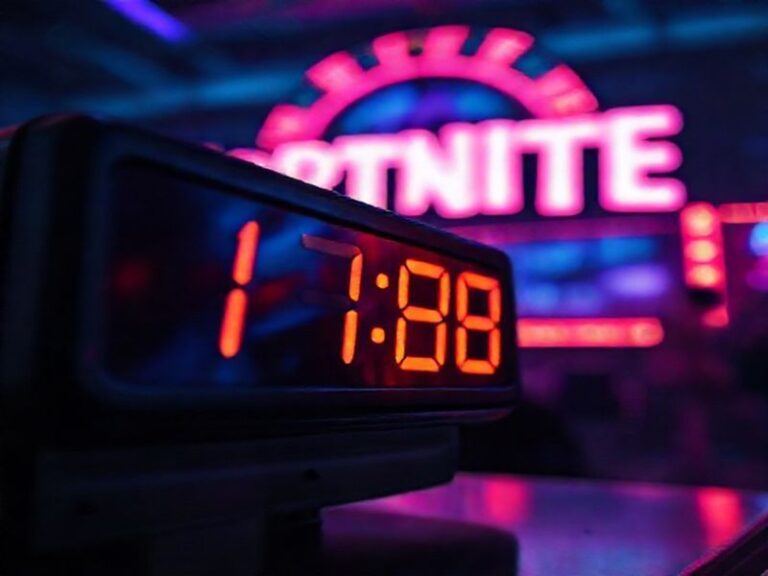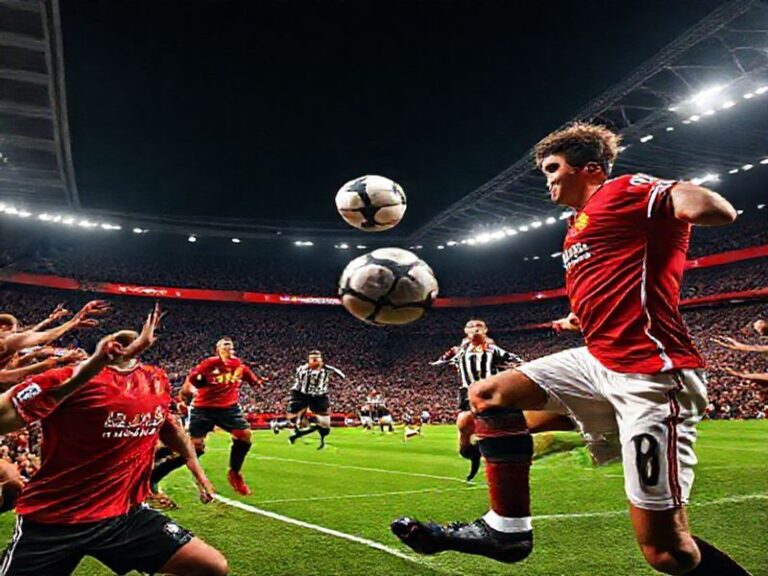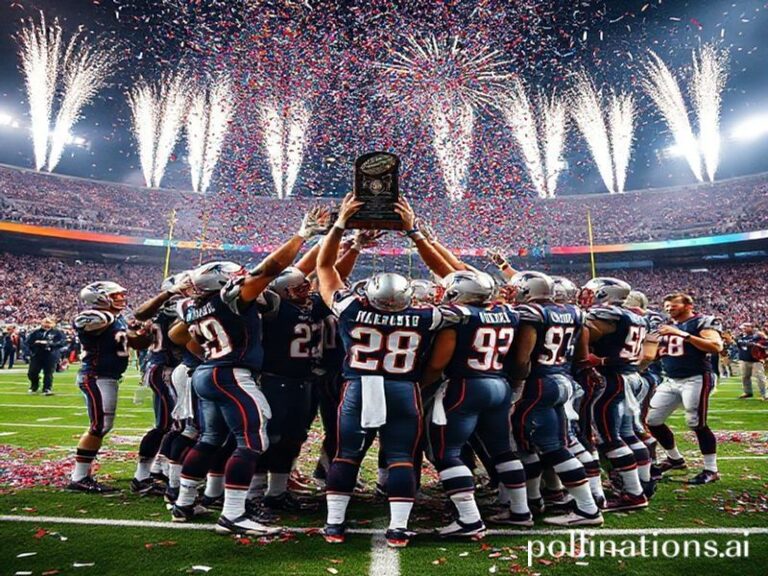Cheeseheads of State: How the Green Bay Packers Became an Unlikely Global Rorschach Test
From the Frozen Tundra to the Thawing World: The Green Bay Packers as Accidental Geopolitical Metaphor
By Our Correspondent Somewhere North of Reason
If you mention the Green Bay Packers to a pub full of Berliners, the reaction will be roughly the same as if you’d asked them to recite the Wisconsin state fish: polite bewilderment followed by a shrug so continental it could anchor the euro. Yet, in this age where every micro-trend is freighted with planetary significance, the Packers—an American football team whose mailing address still includes the word “Lambeau”—have become a sort of geopolitical mood ring. When the cheeseheads thrive, global markets don’t exactly tremble, but they do emit a faint, lactose-rich sigh that analysts insist is meaningful.
To understand why, consider the numbers. The franchise is 100-percent community-owned, a quaint arrangement that resembles a Scandinavian housing co-op more than the usual gilded oligopoly of modern sport. Roughly 537,460 shareholders own 5.2 million shares of glorified wallpaper, none of which can be sold for profit, making the Packers the only major league team whose balance sheet reads like an Amish credit union. In a world where billionaires treat nation-states like distressed real estate, this is practically anarcho-syndicalism with a side of bratwurst.
The international implications, of course, are mostly theoretical—like Canadian military doctrine—but they are not zero. European regulators periodically cite the Packers’ ownership model when scolding UEFA about “competitive balance,” a phrase that loosely translates to “please stop letting sovereign wealth funds buy entire leagues.” Meanwhile, Chinese sports executives, who currently treat soccer clubs the way American hedge funds treat vintage wine, have been spotted in Green Bay taking notes, presumably wondering how to monetize civic delusion.
And then there is the weather. Lambeau Field in January is what climate scientists politely call “a negative feedback loop.” The stadium’s open-air refrigeration unit once served as a Cold War propaganda prop—Look, our boys play half-naked in minus-25 while Soviets huddle in felt boots!—but these days the frozen tundra is less a testament to American grit and more a reminder that polar vortexes now take weekend detours through Texas. When Packers fans tailgate shirtless in blizzards, foreign correspondents file dispatches about “frontier pathologies,” ignoring the fact that Siberian teenagers do the same thing for TikTok likes.
Global supply chains have also discovered the Packers. Mexican avocados, once the exclusive property of Super Bowl guacamole, now hitchhike to Green Bay for autumn home games, proving that NAFTA lives on in the form of overpriced nachos. Korean conglomerates sponsor the instant-replay equipment, a partnership that allows them to field-test 8K cameras before installing them along the DMZ. Even the iconic cheesehead is now injection-molded in Shenzhen, because nothing says local pride like a Styrofoam wedge stamped “Made in China.”
And yet, somehow, the illusion endures. A recent poll placed the Packers among the ten most-recognized American brands in the United Kingdom, just behind Coca-Cola and ahead of the CIA. Britons who cannot name a single U.S. senator can recite Aaron Rodgers’ immunization status with the weary precision of a tax accountant. It is a peculiar form of cultural imperialism: we export the Kardashians and import their judgment.
Which brings us to the existential bit. The Packers’ annual shareholder meeting—part pep rally, part shareholder revolt, part open-mic night for the delusionally civic-minded—now draws attendees from five continents. Last year, a Norwegian salmon magnate asked whether the team could install fjord-friendly concessions. An Argentine soy baron lobbied for vegan chorizo. Everyone pretended these were reasonable requests, because hope, like cholesterol, is easier to ingest than to burn off.
In the end, the Green Bay Packers matter globally for the same reason Icelandic yogurt and Korean boy bands do: they are a comforting fiction that the world is still small enough to be enchanted by something as parochial as a town-owned football team. We watch them through whatever streaming package hasn’t been geo-blocked this week and tell ourselves that community, like winter, is eternal. Then the game ends, the stock certificates stay worthless, and the planet resumes its regularly scheduled meltdown. But for three hours on a Sunday, the frozen tundra feels like the last place where the apocalypse has been politely asked to wait outside.

